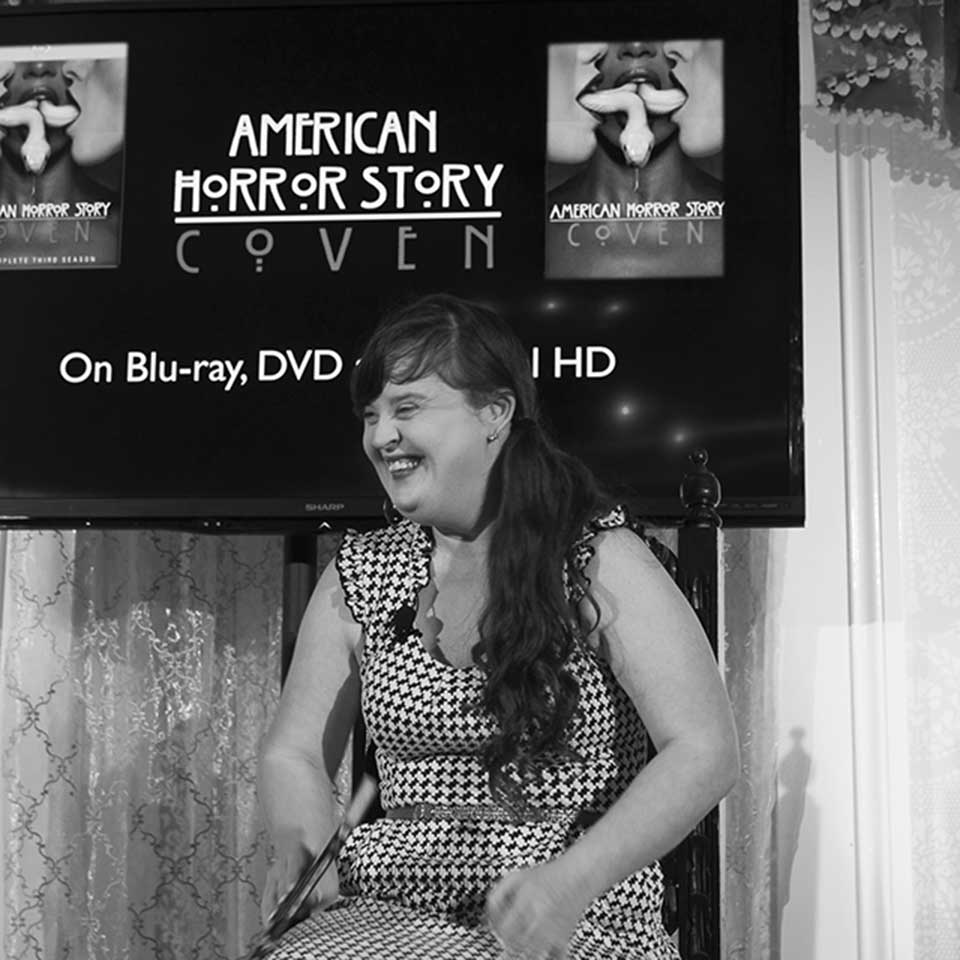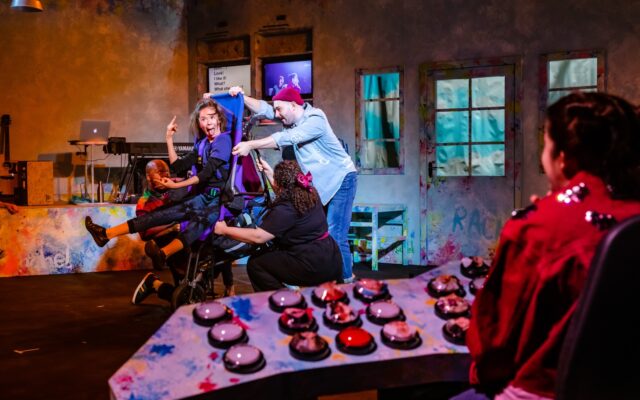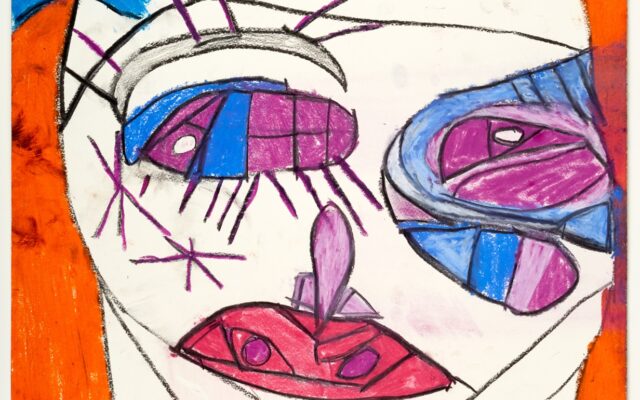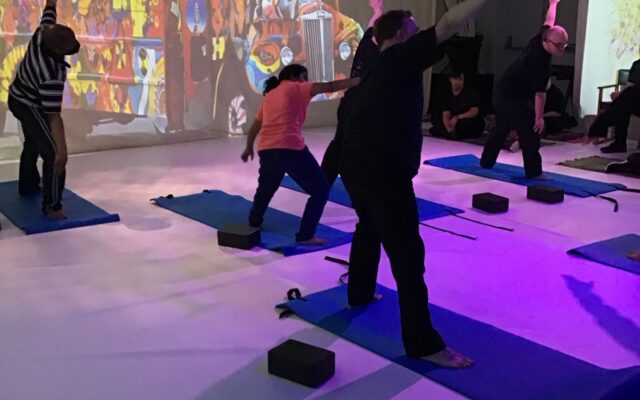A critically acclaimed short film challenging perceptions about love, sexuality and learning disability has finally begun to receive recognition after Covid halted its wider distribution and viewing opportunities.
S.A.M, filmed in 2020, is set in a park playground where Sam, played by George Webster, an actor with Down syndrome, is hanging out with some friends.
The group discuss a boy on the swings who they obviously know from school, and talk about his scruffy clothes and their general dislike of him.
They don’t notice at all when Sam says he has a crush on the boy, perhaps illustrating how easily his sexuality can be ignored because he has a learning disability.
Sam goes over to talk to the boy, also called Sam, played by Sam Retford. This develops into a relationship that highlights the stereotypes regarding sexuality that people with learning disabilities can face.
S.A.M also portrays the dysfunctional lives of the two boys. One is desperate to escape a family who do not care, while the other yearns to explore independence, which his overprotective parents are trying to shield him from.
The film features dynamic performances from the two central characters and deserves to be seen by a wider audience.
S.A.M was directed by Lloyd Eyre-Morgan and Neil Ely, who are based in Manchester, where the film was shot. The duo included people with disabilities behind the camera and as part of the production team to ensure inclusivity.
They hope to expand the film into a full-length version in the future.
Initially scheduled to debut at BFI Flare, it has been entered in film festivals around the country and was featured in Best British Short 2: Smile on Channel 4. It was shown at the Oska Bright film festival, which took place in Brighton in March.
In an interview with Enable magazine in October 2020, Ely noted that “people with disability are part of the LGBTQ+ community” but their stories tended not to be visible.
“We want to change this and get visibility on these stories and, most important, getting people to have conversations they probably have been nervous to talk about,” he said.
Webster is an ambassador for Mencap and has been vocal about challenging prejudice over disability, especially Down syndrome.
In September last year, he became the first presenter with Down syndrome on BBC CBeebies. He presented a BBC Bitesize video, 5 Myths of Down’s Syndrome, where he challenged some of society’s preconceived ideas.
Behind and in front of the camera
Webster was also featured in an article in The Guardian by Hayley Maitland in November 2021 which highlighted a shift in the visibility of Down syndrome on screen over the past few years.
Recently, Netflix and the BBC set up a five-year partnership to get talented people with disabilities in front of and behind the camera.
This positive shift in writing and performance is also demonstrated in HBO’s Mare of Easttown, a critically acclaimed series starring Kate Winslet as a detective investigating a murder in a small town in Pennsylvania.
Teenager Kassie Mundhenk, an actress with Down syndrome, was cast as the daughter of Detective Mare’s closest friend.
Writer Brad Ingelsby told The Guardian that children with Down syndrome were “always part of my life growing up”.
He said: “If you’re creating a ‘portrait’ of a community, it just makes sense to have someone with Down’s syndrome as part of the ecosystem.”
The Guardian article mentions Los Angeles-based agent Gail Williamson, who is head of a Hollywood talent agency’s division for diversity. She started out with 25 clients and now looks after more than 200 individuals with disabilities.
She now has high-profile production clients including Glee’s Lauren Potter and American Horror Story’s Jamie Brewer, who became the first actor with Down Syndrome to play a lead on Broadway, with a production of Orphans by playwright Lindsey Ferrentino.
Ferrentino’s note to directors was: “Finding a talented actor with Down’s syndrome isn’t difficult. So please do it.”
It seems that some catching up is happening, and representation is beginning to reflect the world around us in a more equitable way.

Jamie Brewer of American Horror Story is represented by talent agent Gail Williamson, who has more than 200 clients with disabilities – Photo S.A.M; EnigmaArts/Flickr CC BY-NC-ND 2.0





